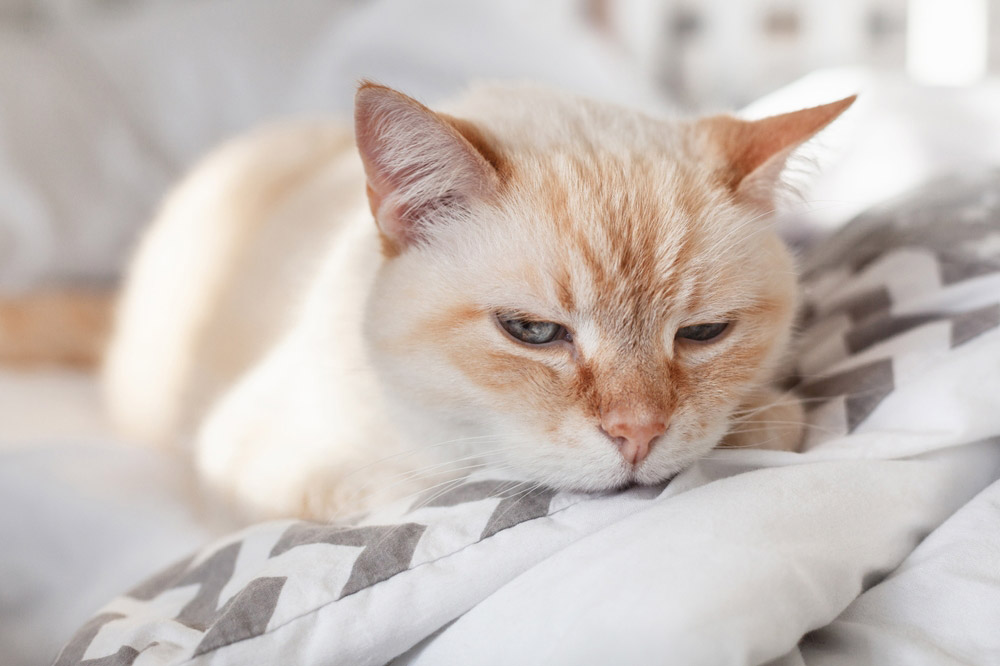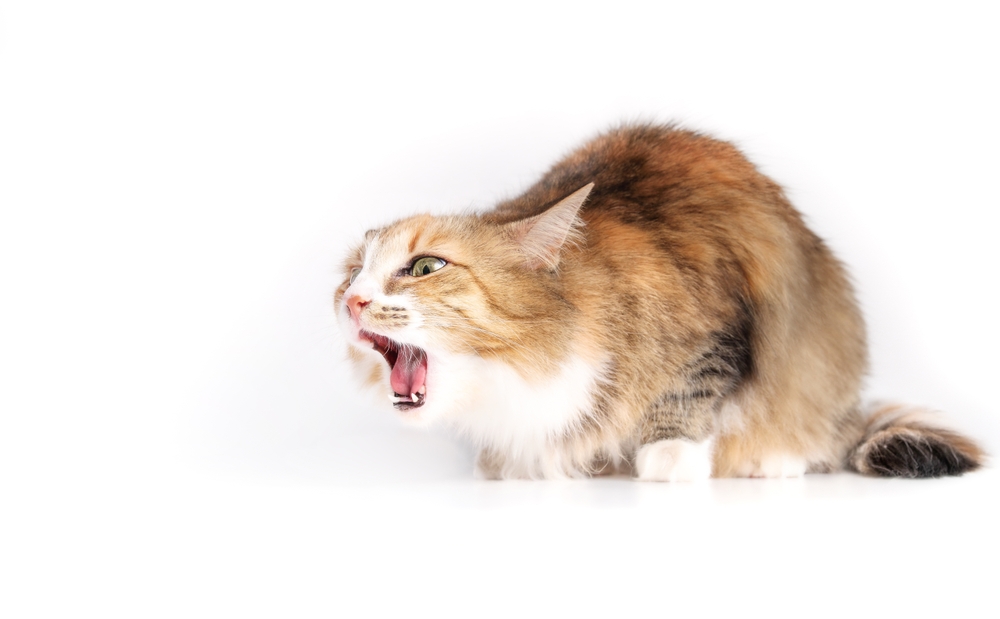If your cat has been coughing lately, you may wonder if something is going on that warrants a veterinary examination, especially if your companion’s cough sounds like he’s channeling a duck.
The sounds cats make when they cough are often difficult to describe, and often confusing, due to the lack of standardization regarding coughing vocabulary. Some people may further describe it as retching, or hacking, although these terms can mean different things to different people. Coughing can be further confusing due to colloquial terms such as “hairball cough”, which is generally a more accurate description of vomiting.
This article will look at some of the more common causes of coughing in cats, and help you determine what to do if you notice your cat coughing.


What Are Common Conditions That Can Cause Cats to Cough?
A variety of conditions can cause cats to cough, including asthma, cancer, foreign objects stuck, and respiratory infections.
Asthma
Asthma is when a cat’s lungs and airways become narrow and swollen. Although the trigger is not always known, the result is an inflammatory reaction within the respiratory system. Signs of the condition are non-specific, and may include repeated coughing, and coughing fits (or paroxysms) of coughing. If your cat is coughing but not having trouble breathing, consider contacting your veterinarian and explain the situation to determine if they need to be seen right away or can wait for a regular appointment. Cats with breathing problems should be seen by an emergency veterinarian immediately.
Treatment usually focuses on controlling the inflammation. Cats with asthma usually need anti-inflammatory medication to keep the condition under long-term control. Other conditions must be ruled out before a diagnosis of asthma is made.

Cancer
Cats can develop benign and malignant tumors in their respiratory systems, including their larynxes, tracheas, and lungs. Laryngeal and tracheal tumors are rare in cats, as are primary lung tumors. Primary lung tumors are diagnosed more often in older than in younger cats. Cats can also develop malignant tumors when the cancer metastasizes from other sites.
Signs of laryngeal and tracheal tumors may include difficulty breathing, coughing, or voice changes. This may be why some people describe the cough as duck-like, although this is not the only possible cause. Diagnosis of laryngeal and tracheal tumors often involves examination of suspected areas if possible, generally under sedation, along with imaging such as x-ray or endoscopy.
Respiratory Infections
Viral and bacterial infections can cause lower respiratory problems in cats. Fungi and parasites can also be responsible. Signs may include coughing, rapid or open-mouth breathing, fever, dizziness, appetite changes, and weight loss. As with other lower airway diseases, veterinary consultation, diagnosis, and treatment are the usual next steps.


 Conclusion
Conclusion
Cats can cough for a number of reasons, from lower respiratory infections, to chronic conditions like asthma and diseases like cancer. Coughing in cats should always be checked by a veterinarian. If your kitten coughs like a duck, contact your veterinarian for an evaluation.
Featured Image Credit: Suzanne Tucker, Shutterstock


